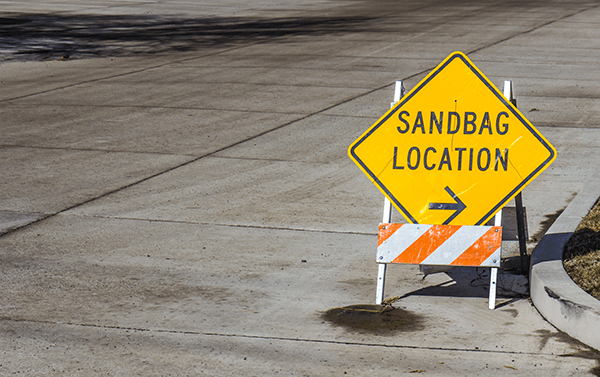
Cyclone Alfred is the first to hit Queensland’s south-east in more than 50 years.
For many people, not knowing what to expect during an event like this can have a significant effect on their mental health, causing anxiety and stress.
Dr Simon Byrne, from UQ’s School of Psychology shares tips on how to manage these feelings, to help protect health and wellbeing during this time.
Ensure physical safety
Not feeling safe in your own home can have a profound psychological impact.
“Ensuring your physical safety is the highest priority, not just for your physical wellbeing, but also for your mental wellbeing,” Dr Byrne said.
“If your welfare is directly threatened, it is obviously much harder to maintain your mental health.
“Keeping up to date with advice and direction from reputable authorities can help to ensure you are safe both physically and mentally.”
Stay connected with community
As seen in recent research by PhD candidate Natalie Craig, the social connections and groups in our lives can play an important role during natural disasters, providing physical, material and emotional support that can help people recover.
“Keeping connected with family, friends and neighbours can positively impact people’s mental health during a disaster,” Dr Byrne said.
“It is natural to gravitate towards others during these events and this can be important both for our survival and emotional health.
"Try to regularly check in with those around you and lean on each other for support."
Maintain self-care
Focusing on what you can control is key. This includes maintaining a routine where possible and ensuring you are eating and sleeping in regular patterns.
“By maintaining some form of normalcy, you can feel more in control of your situation,” Dr Byrne said.
“The routine may need to be adapted to fit the situation and maintain safety, but incorporating aspects of your regular day can be valuable in safeguarding mental health."

Breaking through the noise
While it’s incredibly important to keep abreast of information and advice, it can be overwhelming digesting the sheer volume that is available. Dr Byrne suggests focussing on only a few reputable sources of information, that provides practical information and assistance.
"When someone is highly anxious, they can seek out too much information related to a threat and make themselves even more anxious,” Dr Byrne said.
“For example, some people repeatedly scan or check information on the internet as a way of preparing and reassuring themselves.
“This can be unhelpful if they are only focusing on threat-related information which they cannot control and heightens their anxiety.”
Managing anxiety after the event
Most of the time, stress-related symptoms pass once the threat has passed.If symptoms persist for several weeks after the event, you may need to see a mental health professional.
“If you always feel stressed or you cannot stop thinking about the disaster, you may need professional help,” Dr Byrne said.
“This is more common if someone directly experiences a highly stressful event, such as a threat to their life or the lives of their loved ones.
“People can also become hypervigilant to cues that remind them of the natural disaster.
“For example, someone who has lost their home to flooding may experience heightened anxiety when there is heavy rain or someone who experienced bushfires may be triggered by the smell of smoke.
“A GP or a psychologist with training in trauma and cognitive behaviour therapy is often a good place to look for help."
Tips/Resources:
- Know your local radio station frequency for emergency updates
- Queensland Government Disaster Management Dashboard: https://www.disaster.qld.gov.au/warnings
- Local Government Disaster Dashboards: https://www.qld.gov.au/community/disasters-emergencies/disasters/resources-translations/local-government-disaster-dashboards



